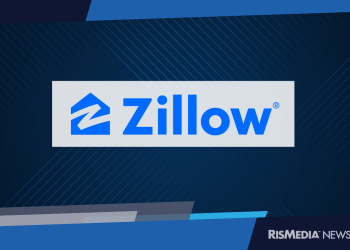The industry has been eagerly awaiting further details about President Joe Biden’s proposed first-time homebuyer tax credit—which originally featured a max of $15,000 per buyer toward their down payment on a home.
The House Financial Services Committee recently released the latest draft of the proposal, called the “Downpayment Toward Equity Act of 2021.” The first note of significance? The proposal comes in the form of a grant, rather than being structured as a tax break or refund.
Here’s what you need to know about the latest proposal:
Funding Source and Distribution Formula
There’s not currently an amount set in terms of funding. Congress will have to debate about the amount of funding they find acceptable for fiscal years 2021 – 2030. However, assistance limits are currently up to $20,000 per homebuyer (or up to $25,000 if the homebuyer qualifies as a “socially and economically disadvantaged individual”).
The Department of Housing and Urban Development (HUD) will be allocating the funds. Of the total funds provided each year, HUD is required to use at least 5% to support housing counseling activities.
Funding will take into account each state’s population, median area home prices and racial disparities in homeownership. Any unused funds will be reallocated by HUD at the end of each year to states that show they are in need—but only if they meet the Treasury’s program goals.
How Can the Grant Can Be Used?
According to the proposal, funds must only be used to help homebuyers purchase a home. Assistance can go toward a down payment or the closing costs, or to reduce the interest rate on a mortgage.
Funds can be used with the following mortgages:
- One that is eligible for purchase by Fannie Mae or Freddie Mac
- One insured by the FHA or USDA
- One that meets the definition of a qualified mortgage
Who Is Eligible?
While the grant is for first-time homebuyers, those who have not owned a home in three years may be eligible.
Even homebuyers receiving assistance from federal, state, local, private or nonprofit sources may still be able to receive a grant.
Grantees must meet income requirements and qualify as “first-generation” homebuyers. This means they are individuals whose parents have:
- Never owned their own home during the homebuyer’s lifetime.
- Previously owned a home during the homebuyer’s lifetime but lost the home to foreclosure, short sale or deed-in-lieu, and no longer own a home.
Homebuyers who lived in foster care may also qualify as a first-generation homebuyer.
Additional Rules
In order to receive the grant, homebuyers must complete a home purchase counseling program through a HUD-approved agency. States may be able to waive this condition for homebuyers who meet specific HUD-approved underwriting criteria.
Homebuyers who stop occupying their home less than a year after they purchased will need to repay the entire grant. This amount decreases by 20% for each year they live in the home, with no penalty occurring after five years. The penalty would also be waived for home sellers who realize a gain on their sale that is less than the amount they owe.
This draft is simply a kicking-off point to begin discussions. To pass the grant program into law, a bill will have to make its way through both houses of Congress, which could mean further revisions.
Zillow released a report in March finding that a $15,000 tax credit could cover the entire down payment for homes in 40 of the 50 largest U.S. metros. The company found that with a 3.5% down payment on a 30-year mortgage with a 3% interest rate, about 9.3 million renter households in the U.S. (27.4%) would spend less than a third of their income on the monthly payment for the median home sold in their metro in 2022.
This is a developing story. Stay tuned to RISMedia for updates.
 Liz Dominguez is RISMedia’s senior online editor. Email her your real estate news ideas at lizd@rismedia.com.
Liz Dominguez is RISMedia’s senior online editor. Email her your real estate news ideas at lizd@rismedia.com.











